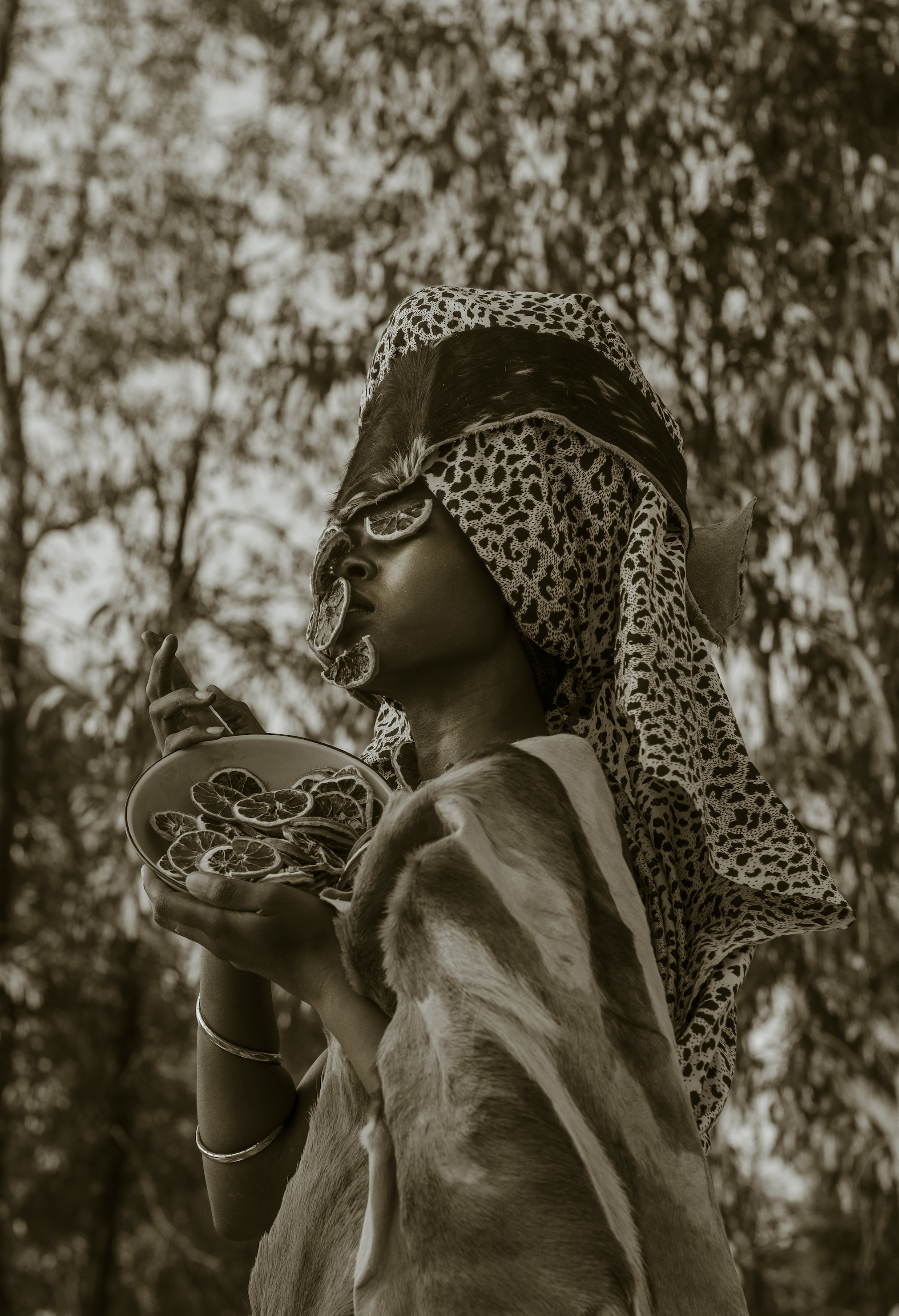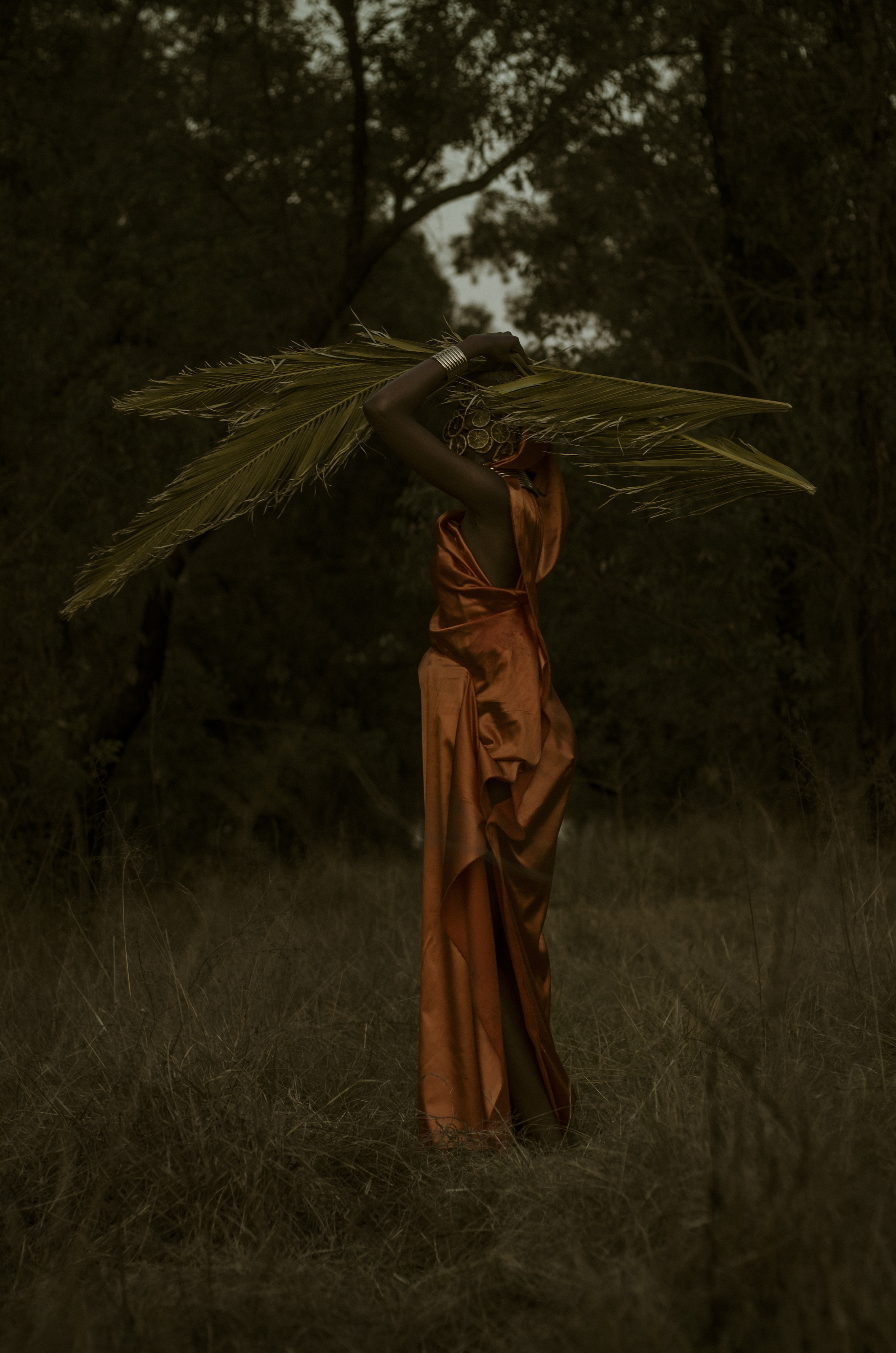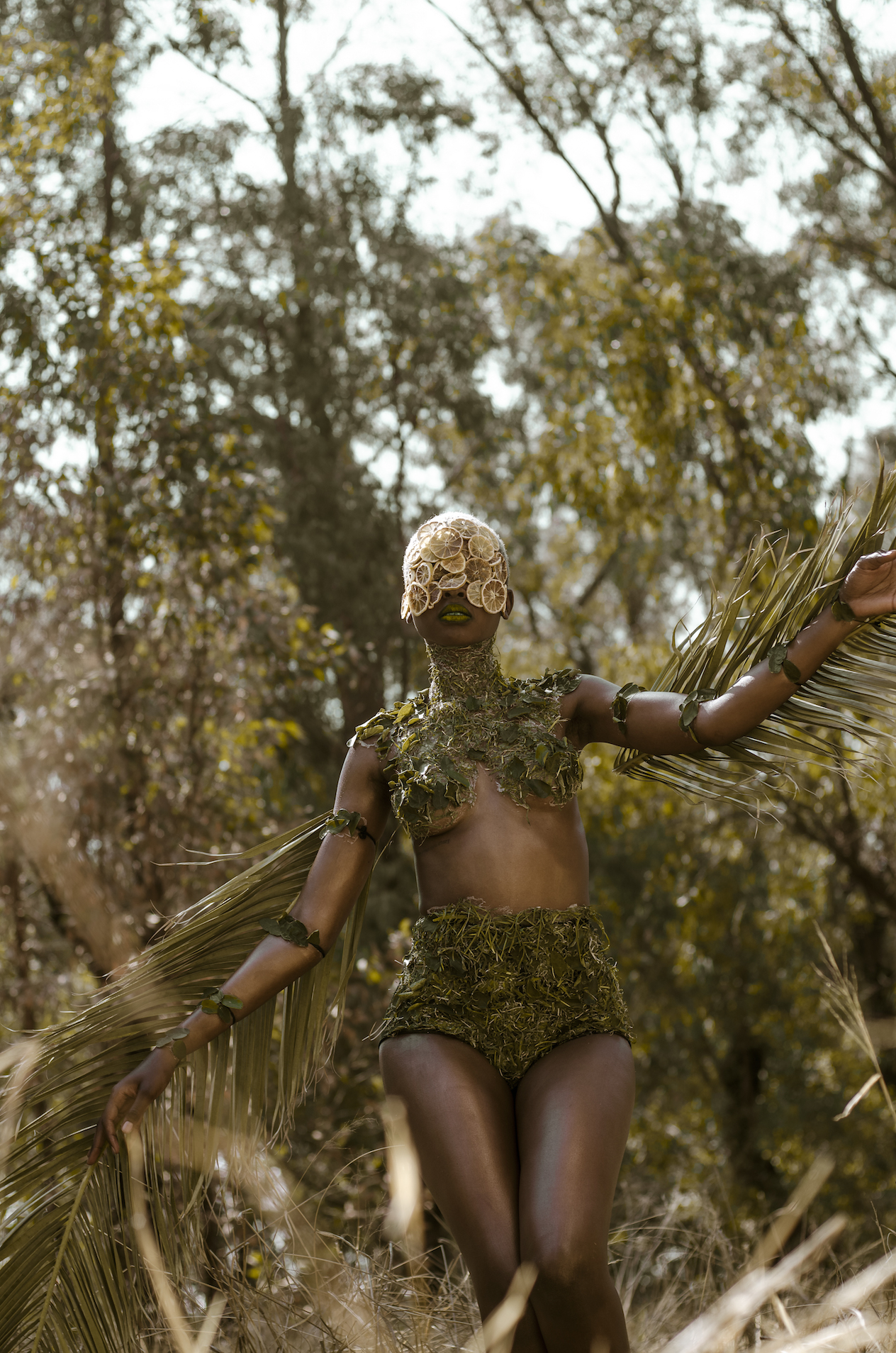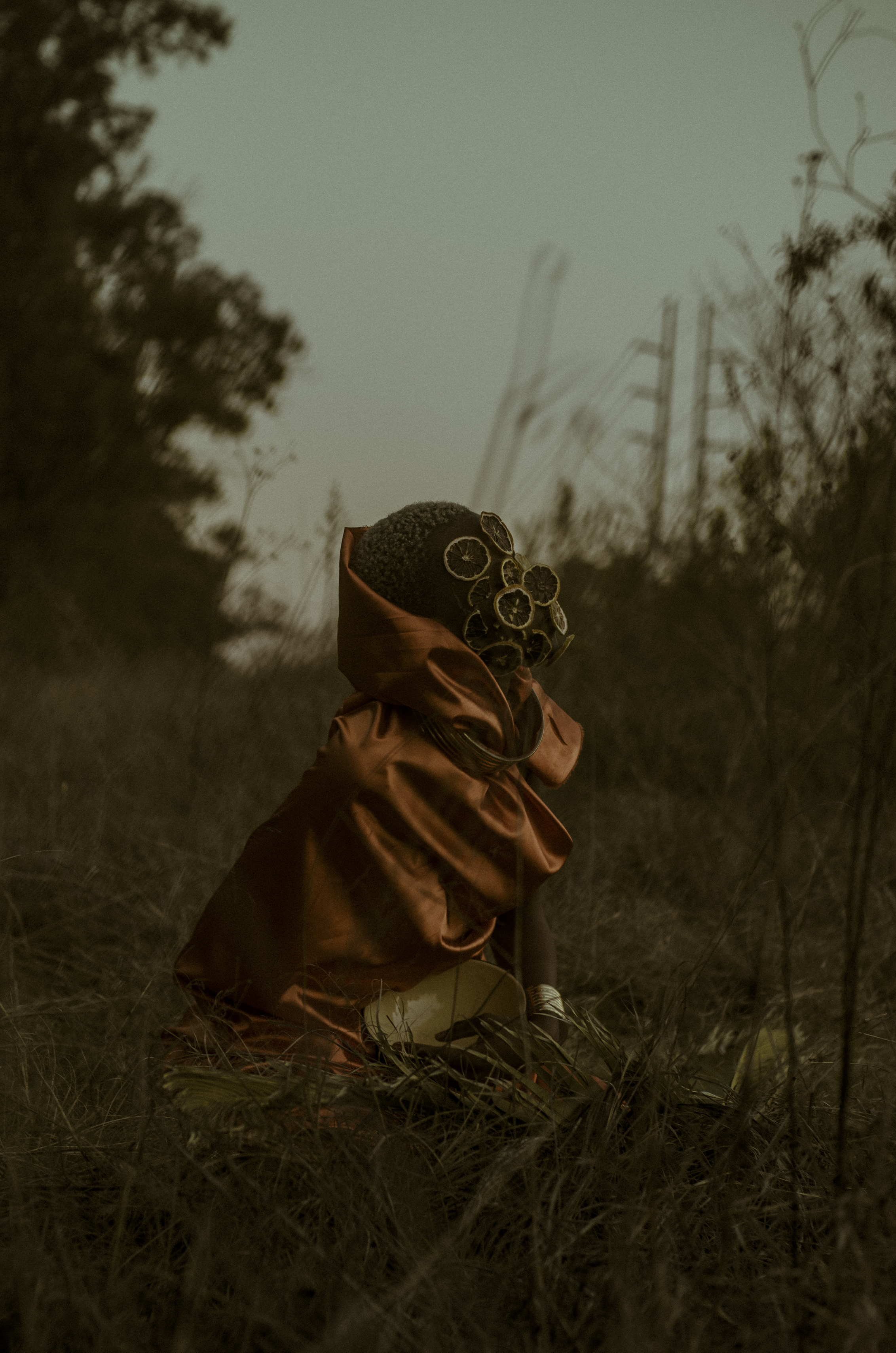B’thaka s’yananaba,snanabel’ iqiniso
Ibekiwe is’londa s’babel umniniso
Ivuth’amalangabi ngendeni lendaba,siyatjha
Ndl’ ekulu,B’nzinzo lwazi nasi indaba
s’batjha
– Thembisile Mkhatshwa
In a complex exploration of identity Zana Masombuka, also known as the Ndebele Superhero, probes notions of heritage and its relevance in the contemporary moment – across the time-space continuum. Zana shares stories of the past and present to access the re-imagination of her people’s future. She was raised in a small rural town in Kwa-Ndebele, called Siyabuswa. Immersed in this space, she found herself often, “marvelling at the complexity and intricacy of the Ndebele culture… I draw a lot of inspiration from IsiNdebele, not only as a culture, but as well as a language and a way of life.” The desire to document her younger brother’s homecoming after initiation prompted a curiosity to weave the narrative threads of culture, “from the perspective of a 21st century Ndebele girl.”
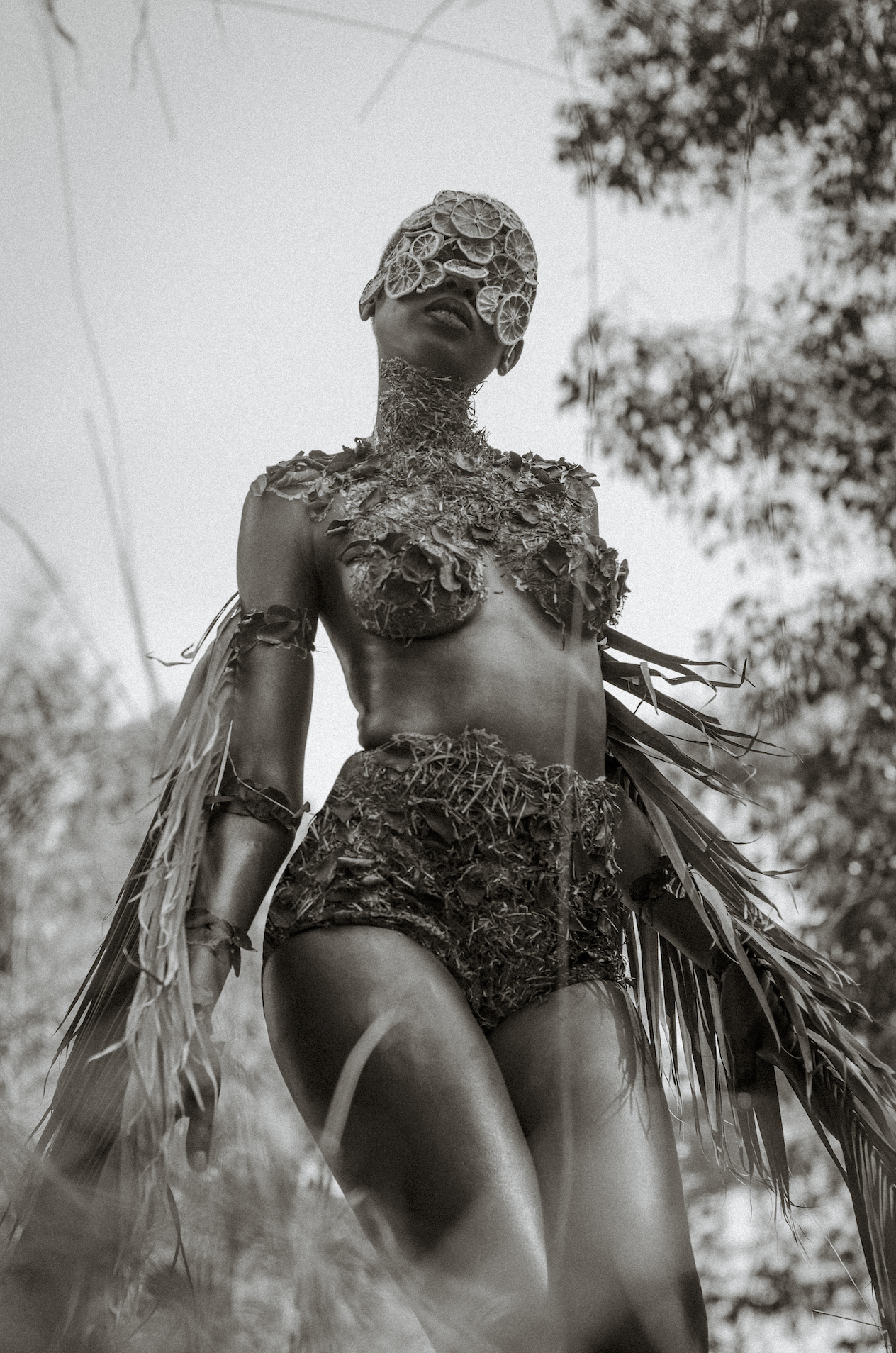
Zana maintains that globalisation is an opportunity for Africa to, “consciously reinvent itself to what is representative of the people living on the continent.” She is interested in seeing an influx of authentic and honest stories. “I think that when you are being authentic and honest there are no limits to what you can do as an artist because you are simply telling your story, your truth. I think that’s what will elevate the South African artistic landscape, that is, if we are being unapologetically ourselves.” In the same vain, having an understanding and insight to one’s own heritage and identity she believes, gives you a sense of “purpose and authenticity.”
In her most recent project, Time, Zana attempts to capture the essence of time as well as its relationship to the evolution of African culture with a particular focus on inter-generational knowledge systems and the tensions between them. Theoretically framed by Frantz Fanon’s seminal text, The Wretched of the Earth the project probes notions of “decolonization, unlearning and the remaking of culture within African societies post-colonial Africa. This allows the artists and the audience, to dig deeper into questions of African knowledge and how it informs identity and belonging.”
Lemons are used as a visual signifier to juxtapose young and ancestral generations. The initial part of the series encompasses the, “refreshing and zestful spirit of the African youth; and how they have the potential to take the culture forward but need the wisdom to do so sustainably and effectively.” The lemons in this instance are used simultaneously as symbolic of arrogance and vulnerability. “They are arrogant because they are denied access to the true wisdom of who they are; and they are vulnerable because they are yearning to know who they are, where they come and where they are going. It creates a nervous condition3, within the African, as stated by Frantz Fanon. It is the blind leading the blind and hoping for the better future. It is the cultivation of a reactionary existence.”
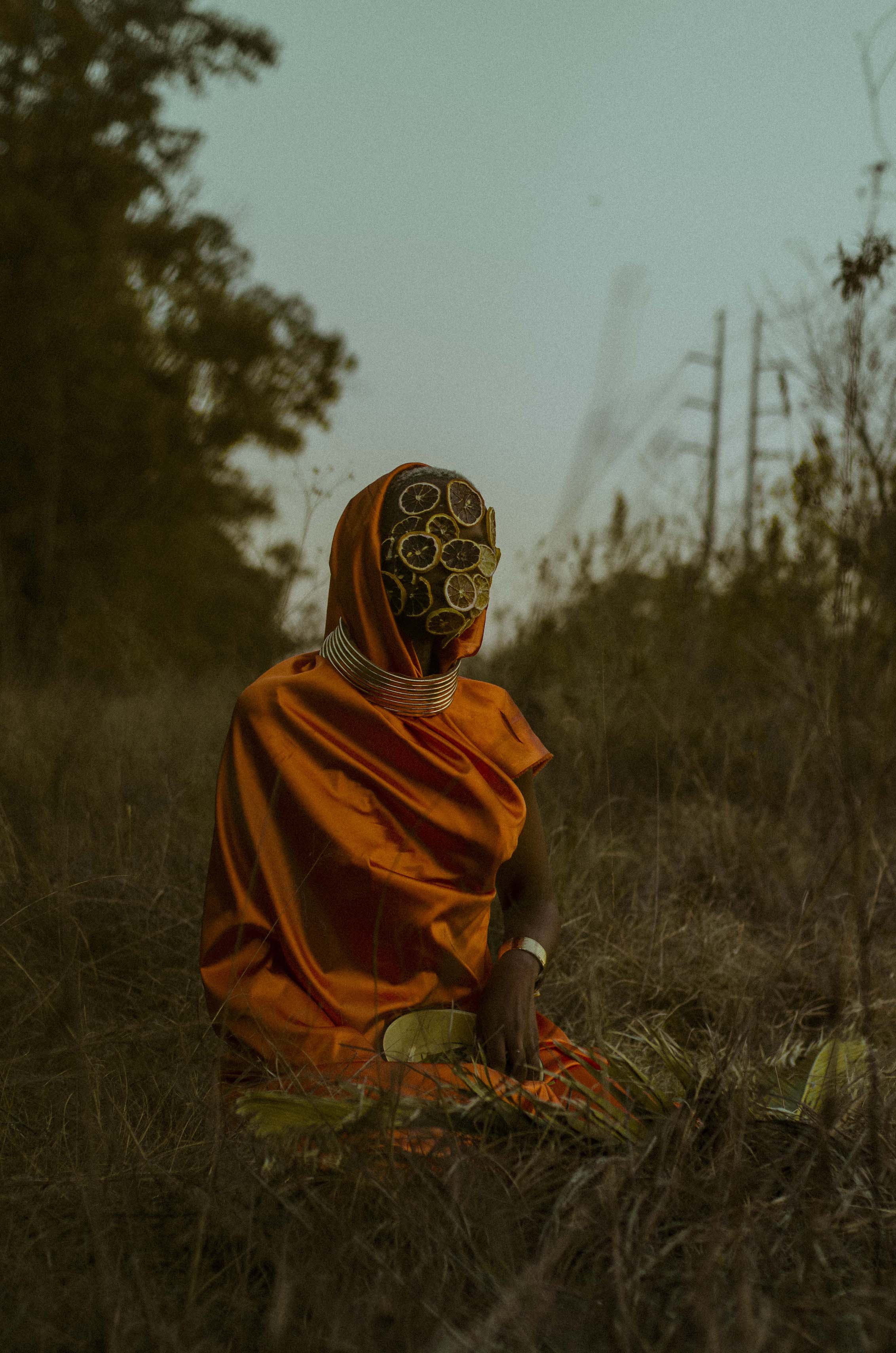
Whereas the older generation have domain over culture and tradition – one of the few things they have autonomy over in a post-colonial context. Fanon has written extensively about the ways in which the process of colonisation has attempted to obliterate the traditions of Africa, demanding an assimilation of western culture. “This has resulted in the existence of an impoverished people, not only physically but as well as emotionally and spiritually. It has fostered in a culture of othering within African communities, distrust and insufficiency. Therefore, it comes as no surprise that the older generation is sometimes reluctant to teach the youth about the origins of who they are; because they themselves are still coming to term[s] with that very idea of identity.” This reluctance is signified by darker, more dehydrated lemons which contain the sweetness of wisdom having endured the passage of time.
The narrative in the series progresses to the point of liberation and reconciliation. It embodies the notion that the ways in which to attain this is through an inter-generational collaboration: zestful youth paired with sweet wisdom. “It speaks about the importance of recognizing that the time is now for the succession of this collaborative effort. It further enforces balance by having both the light and dark lemons peacefully working together in one ecosystem for a better tomorrow.”
Each generation must discover its mission, fulfil it or betray it, in relative opacity.
– Frantz Fanon
